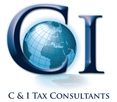Pittsburg Enterprise Zone
The City of Pittsburg is one of only 39 state designated Enterprise Zones. The Enterprise Zone Program offers state tax credits to businesses located within a designated Enterprise Zone. Additionally, each local jurisdiction is encouraged to offer Local Incentives to the businesses located within each Enterprise Zone.
The City of Pittsburg has adopted the Fee Waiver/Reduction Program to encourage investment and community revitalization within Pittsburg’s Zone by providing fee waivers or reductions for the improvement of property located within the Zone. The Program offers a 100% fee waiver for City development fees associated with the rehabilitation of existing commercial buildings and a 50% fee waiver for City development fees associated with brand new commercial construction.
Credit Overview:
Hiring Tax Credits.
The Hiring Tax Credits tend to be the most lucrative for most enterprise zone businesses. The credit is based on qualified wages paid to qualified employees. In order for an employee to be qualified he/she must have been hired after the zone was designated and before it expires and the employee must meet one of the program’s eligibility criteria at the time of hire, including but not limited to the following:
- Economically disadvantaged
- Eligible for public assistance
- Disabled individuals
- Dislocated workers
- Certain veterans (all veterans from the Vietnam era)
Qualified wages are defined by the portion of wages that do not exceed one hundred fifty percent (150%) of minimum wage. One hundred fifty percent of the current minimum wage ($8.00 – Effective 1/1/08) is $12. Therefore if an employer is paying a qualified employee $15.00 per hour, only $12.00 will be eligible for computing the hiring tax credit. To compute the hiring tax credit the following percentages of qualified wages are used:
- 50% during the 1st year of employment
- 40% during the 2nd year of employment
- 30% during the 3rd year of employment
- 20% during the 4th year of employment
- 10% during the 5th year of employment
Although Pittsburg’s zone expired January 10, 2008, as long as the employee is hired on or before that date, the hiring credit will be good for a full five year period beginning on the date of hire. Consider the following example where an employer has 20 qualified employees each earning $15 per hour ($12 cap is
used for the calculation) and each employed full time for a cumulative total of 41,600 hours per year and the employees were all hired on January 1, 2008:
- Year 1 credit (2008): $249,600
- Year 2 credit (2009): $199,680
- Year 3 credit (2010): $149,760
- Year 4 credit (2011): $ 99,840
- Year 5 credit (2012): $ 49,920
- Total 5-year credit: $748,800
Now consider the following example that illustrates how small businesses with few employees can benefit from this program as well. An employer has 2 qualified employees each earning minimum wage ($8.00) and each working 20 hours per week for a total of 1,040 hours per employee, per year:
- Year 1 credit: $ 8,320
- Year 2 credit: $ 6,656
- Year 3 credit: $ 4,992
- Year 4 credit: $ 3,328
- Year 5 credit: $ 1,664
- Total 5-year credit: $24,960
The hiring credit is limited to tax on income earned in the zone. If a business has two locations and one is located in the enterprise zone and the other one is not then a formula based on the percentage of property and payroll in the enterprise zone is used to compute the hiring credit. The credits cannot be used for a net gain but unused credits can be carried over until exhausted.
All qualified employees must be certified or vouchered in order for the California Franchise Tax Board to recognize an eligible employee. Eligible employees can be vouchered through the City of Pittsburg’s Economic Development Department.
Sales and Use Tax Credit
The Sales and Use Tax credit is a credit in the amount of sales or use tax paid or incurred for the purchase of qualified property. In order for property to qualify the property must have been purchased and placed in service after the zone designation date and before the expiration date and the property must be used exclusively in the zone. Qualified property includes:
- Machinery and machinery parts used for: Fabricating, processing, assembling or manufacturing, Used to produce renewable energy sources, Used for air or water pollution control mechanisms
- Data processing and communications equipment, such as computers, copy machines and telephone systems
- Motion picture manufacturing equipment such as cameras, recorders and sound processing equipment
The property must be purchased in California in order to qualify for the credit unless the property of a comparable quality and price is not readily available in California. The yearly limitation for individuals is the first $1 million of qualified property purchased. As with the hiring credit, the sales and use tax credit is limited to tax on income earned in the zone.
Consider the following example, a company spends $50,000 to purchase machinery used to manufacture wooden toys. The sales tax paid (8.25%) for the purchase is $4,125. That company may reduce the amount of tax imposed on the enterprise zone income by up to $4,125.
Tags: bay area, blog, C & I Tax, california tax law, california tax news, canditax, CCC, central valley, certified public accountants, city of compton, compton, corporate savings, CPA, CPA firms, Enterprise Zone Tax Credits, Enterprise Zones, EZ, EZ tax credits, governor, imperial valley, incentives, inland empire, inner-city, los angeles region, northern California, orange county area, policy, qualify, sacramento area, san diego area, santa clarita, steve dotan, tax credits, tax professionals

 EXCISE TAX REFUND
EXCISE TAX REFUND
